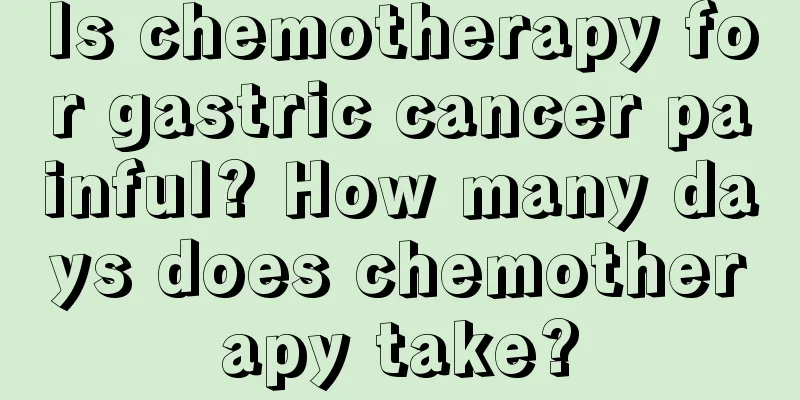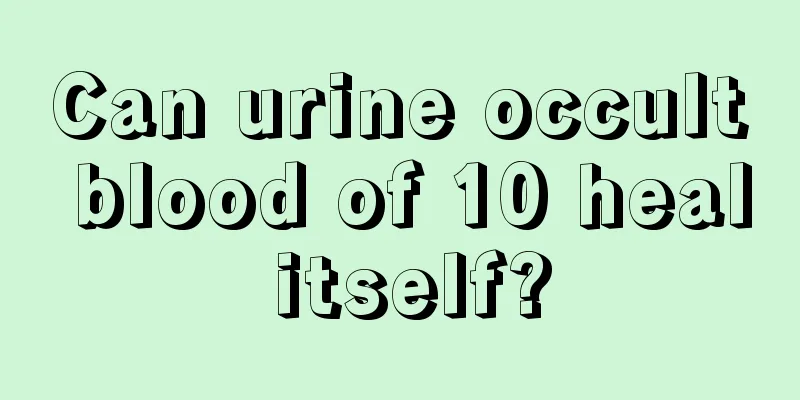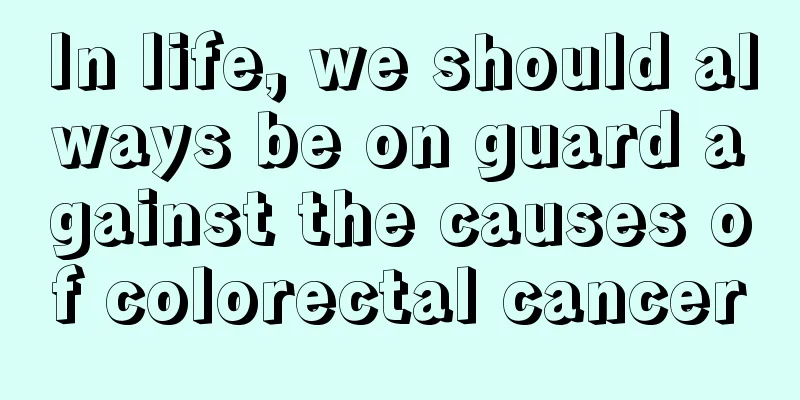Is chemotherapy for gastric cancer painful? How many days does chemotherapy take?

|
Chemotherapy does bring some pain to gastric cancer patients, and common side effects include nausea, vomiting, loss of appetite, etc. A chemotherapy session usually takes 4 to 5 days. 1. Side effects of chemotherapy After chemotherapy for gastric cancer, patients may experience a range of uncomfortable symptoms. Nausea and vomiting are the most common, experienced by almost every patient undergoing chemotherapy. Imagine the feeling of riding a roller coaster with your stomach churning, which is what many patients really feel. Loss of appetite, bloating, abdominal pain, and constipation may also occur. Although pain is not experienced by all patients, people with poor physical fitness may feel uncomfortable. 2. Schedule of chemotherapy The duration of chemotherapy varies depending on the type of drug and dosage form, but usually a chemotherapy session takes 4 to 5 days. During this time, the patient needs to be treated in the hospital, and the doctor will adjust the drug dosage and treatment plan according to individual circumstances. 3. Oral chemotherapy drugs For some patients with stomach cancer, oral chemotherapy drugs are an option. Commonly used drugs include capecitabine and tegafur. These drugs need to be taken continuously, and patients need to pay attention to rest during medication to ensure that the drugs can work effectively. The convenience of oral medication is that it does not require intravenous injection, but it also needs to be strictly followed by the doctor's instructions. 4. Intravenous chemotherapy Intravenous injection is currently the main method of chemotherapy for gastric cancer. This method requires a needle to be placed in the neck vein, and the drug is injected into the body through intravenous infusion. After the chemotherapy is over, the needle will be removed. Commonly used chemotherapy drugs include carboplatin, cisplatin and paclitaxel. Although these drugs are effective, they may also cause more severe side effects. 5. How to reduce the pain of chemotherapy Facing the discomfort caused by chemotherapy, patients can take some measures to relieve the pain. Maintaining good eating habits and choosing easily digestible foods can help relieve gastrointestinal discomfort. Moderate exercise and adequate rest are equally important. They can improve the body's tolerance and help patients better cope with chemotherapy. Psychological support should not be ignored. The company of family and friends can give patients strong spiritual strength. 6. The importance of personalized treatment plans Each patient's physical condition and response to drugs are different, so a personalized treatment plan is particularly important. The doctor will adjust the type and dosage of chemotherapy drugs according to the patient's specific situation to maximize the treatment effect and reduce side effects. Although chemotherapy for gastric cancer brings some pain, patients can better cope with these challenges through scientific treatment and good living habits. I hope that every patient can maintain a positive attitude during the treatment and recover as soon as possible. |
<<: Characteristics and patterns of gastric cancer pain
>>: How to diagnose gastric cancer
Recommend
Which part should I massage for dizziness
Nowadays, people pay more and more attention to t...
The targeted therapy you are worried about
Targeted therapy is a relatively new treatment me...
What should I do if my face has red bloodshot
I believe that many people hope to have a perfect...
Life journey after suffering from bladder cancer
Bladder cancer is one of the most common tumors i...
Acne below the collarbone
Acne occurs on many people. Different people get ...
What is the cause of pancreatic cancer
The occurrence of pancreatic cancer is associated...
What can clean blood vessels?
The problem of blood vessel blockage is becoming ...
The fastest way to soften stool
The fastest way to soften stools is to use medica...
What to do if you feel weak after taking liver cancer medicine? Two ways to deal with the side effects of liver cancer medicine
Anlotinib hydrochloride generally refers to anlot...
Is there any way to gain weight?
Many girls cannot accept having a little extra fa...
What are the main ingredients and functions of enema
Everyone is very familiar with enema. In people&#...
Can I rub my belly after medical abortion
Medical abortion is an option for many people now...
Understand the symptoms of pancreatic tumors
Pancreatic tumor is a malignant tumor disease, wh...
Why can't people with purpura exercise
Purpura is a disease that many patients suffer fr...
Is it okay to get pregnant during kidney cancer?
Is it okay to get pregnant during kidney cancer? ...









